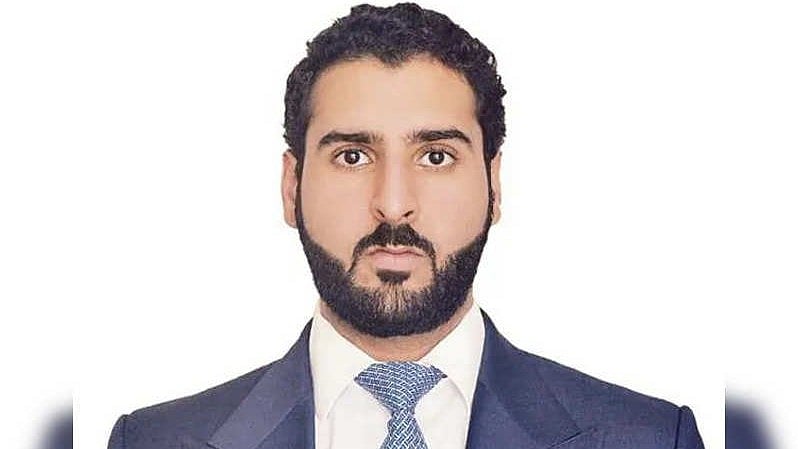Business
Fresh friction emerges within Tata Trusts as Neville Tata’s induction faces objections
Sir Dorabji Tata Trust approved Neville Tata’s 3-year term and Bhaskar Bhat’s induction on 11 Nov, but Sir Ratan Tata Trust blocked his entry

Barely weeks after long-time trustee Mehli Mistry’s exit, new signs of discord are surfacing within the Tata Trusts, the principal shareholders of Tata Sons. People familiar with internal discussions, were quoted by Moneycontrol as saying that the proposed induction of Neville Tata, son of Tata Trusts chairman Noel Tata, has triggered fresh tensions at a time when key governance decisions lie ahead.
Neville Tata had been expected to join both the Sir Dorabji Tata Trust and the Sir Ratan Tata Trust, the two largest shareholders of Tata Sons. While the Sir Dorabji Trust cleared his three-year appointment and also approved the induction of veteran executive Bhaskar Bhat on 11 November, the Sir Ratan Tata Trust stalled the move. Trustee Venu Srinivasan, whose term had recently been renewed, objected on procedural grounds, arguing that Neville’s induction was not listed on the meeting agenda.
Although sensitive items are occasionally taken up under “other matters” for confidentiality, the objection prevented the matter from being considered. The procedural concerns were first reported on 13 November.
The pushback is particularly notable because Srinivasan and Noel Tata were previously viewed as broadly aligned during internal disagreements earlier this year. Those tensions culminated in Mehli Mistry’s departure after several trustees, including, Darius Khambata, Jehangir H. C. Jehangir, Pramit Jhaveri and others, raised concerns over information-sharing within the Trusts. These disputes contributed to the non-renewal of Vijay Singh’s term on the Tata Sons board, following opposition from the same group of trustees.
Despite that backdrop, Mehli Mistry’s reappointment to the Tata Trusts did not go through after Noel Tata, Srinivasan and Vijay Singh voiced objections. Mistry later withdrew a caveat filed with the Maharashtra Charity Commissioner and said he would not pursue the matter further.
Srinivasan, who had been a key figure in Noel Tata’s outreach efforts, including engagement with senior government leaders such as Home Minister Amit Shah, was subsequently reappointed. His tenure was initially set for life but amended to three years in line with state rules.
It is against this recent history that Srinivasan’s stance on Neville’s induction is being interpreted by insiders as a sign of possible realignments within the Trusts, though the extent of any long-term shift remains unclear.
Published: undefined
The developments come as the Tata Sons board prepares to vote on the renewal of chairman N. Chandrasekaran’s term. The Tata Trusts’ nominee directors have already conveyed in-principle support for his continuation, but the formal decision rests with the Tata Sons board. Queries sent to the Trusts, Tata Sons and to Srinivasan elicited no response.
The vote takes place against a challenging market backdrop. Between October 2024 and October 2025, the combined market capitalisation of 23 listed Tata companies fell from roughly Rs 33.57 lakh crore to Rs 26.39 lakh crore, a decline of about 21 percent. Analysts attribute this to softer demand in IT services and the automotive sector, global macroeconomic pressures, and business-specific challenges.
Despite the slump in market value, Tata group companies collectively continued to grow. Disclosures show combined revenues rising from over $165 billion in FY24 to more than $180 billion in FY25, with group-wide revenues estimated at Rs 15.34 lakh crore and net profit at Rs 1.13 lakh crore across listed and unlisted entities.
In contrast, Tata Sons’ standalone financials weakened. Revenue fell from Rs 43,893 crore in FY24 to Rs 38,835 crore in FY25, while net profit declined from around Rs 34,654 crore to Rs 26,232 crore, a drop of roughly 24 percent.
Some trustees have also sought greater clarity on governance processes, including the appraisal and communication framework surrounding executive remuneration. Chandrasekaran’s compensation for FY25 stood at approximately Rs 155.81 crore, a 15 percent rise year-on-year, comprising Rs 15.12 crore in salary and benefits and Rs 140.69 crore in commission.
While no proposal has been formally placed before the Trusts or the Tata Sons board regarding any future leadership role for Neville Tata, insiders say long-term succession planning tends to evolve gradually and may involve the evaluation of several possibilities over extended periods.
With internal equations shifting, a crucial board decision approaching, and questions about leadership transitions gaining prominence, the coming months are expected to be closely watched by the broader Tata ecosystem. As one person familiar with the Trusts’ functioning remarked, “This is a period of careful calibration. Nothing is final until the boards take their decisions.”
With agency inputs
Published: undefined
Follow us on: Facebook, Twitter, Google News, Instagram
Join our official telegram channel (@nationalherald) and stay updated with the latest headlines
Published: undefined